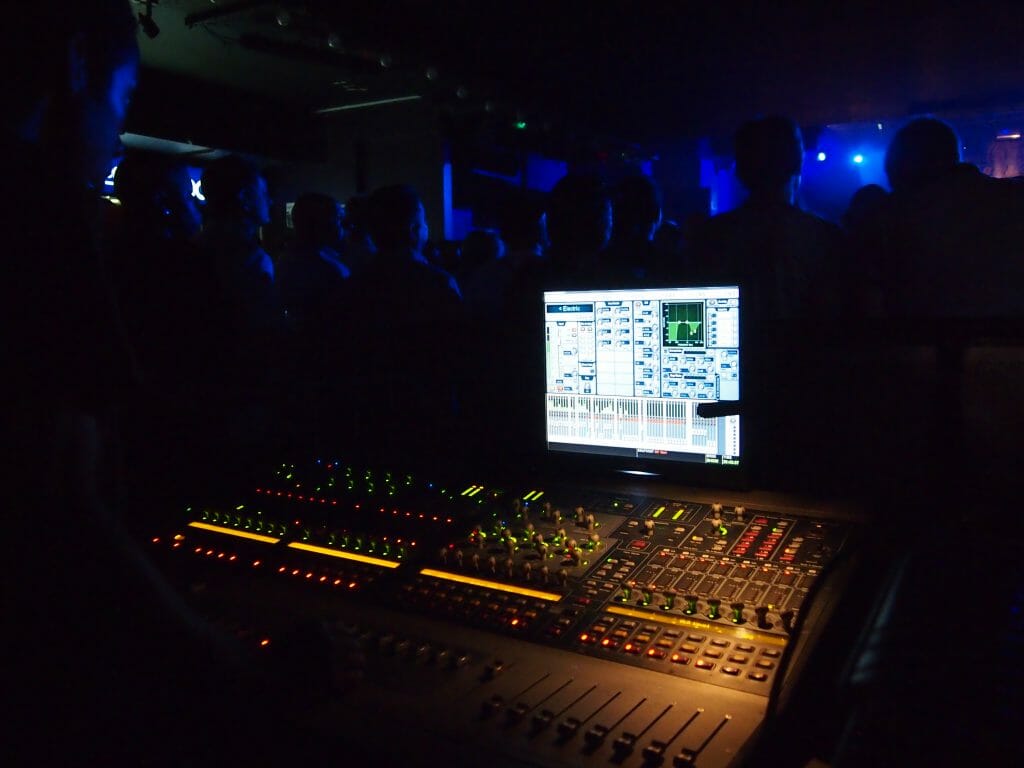A successful gig will come from more than just knowing how to get everything to work; good sound engineers know that just using the right tools won’t automatically ensure a great mix or a well-tuned system. Lest I be misunderstood, I do believe that having the right tools for the job is important and knowing how to operate them is equally important. What I want to draw attention to though, is that mastery of both tools and techniques is crucial to become a better engineer.
The tools of our trade are numerous: mics, DI boxes, mixing desks, EQs, compressors, speakers, rigging hardware and software etc. There are obviously different levels of knowledge and competence when using any piece of equipment or a system as a whole. Being able to connect a system together and get it all to work is a basic necessity. There are also various other levels of knowledge and skill involved such as:
– Knowing how to trace a fault
– Knowing how to work around a fault and still achieve the desired outcome
– Knowing how to fix or solve a fault
– Knowing all of a tools basic features
– Knowing how to organise a tool ergonomically to improve efficiency (i.e. custom faders on digital desks)
– Knowing a tool inside out including it’s advanced features
– Knowing how to (safely and sustainably) achieve things with a tool beyond what it was designed to do.
– Being able to connect a tool to various other combinations of tools (creating a system)
The ability to use our tools well is important in the field. Knowing how to operate a variety of digital desks and rig different PA systems will stand in good stead in a career as an engineer and technician. As well as this, though, a knowledge of when to use a tool and when not to; when to use a tool and when to use a different one comes with developed skill and experience. All tools are limited by how well the engineer utilises them and what techniques the engineer adopts while doing so.
The result of using even the simplest tools such as gain, EQ or compression with more advanced skill and technique can have huge benefits for a mix. Having good gain structure (including within inserts) is one basic example of maximising the possibilities of a mix- even if we as engineers are using the most basic of setups. Even at a hobbyist level many people know how to turn bass, mid, or high frequencies up and down. However, knowing how to EQ well by effective microphone placement, good system tuning and utilising subtractive EQ techniques has a massive impact for feedback control, phase, and the sound quality of the show. Knowledge of more advanced techniques can also help us achieve better results for our clients and audiences despite the limitations we may face. These might include dynamic EQ, multi-band compression, parallel compression and cardioid sub-arraying. To take multi-band compression as an example, the uses are many; but one use may be to allow the high frequencies to sparkle through the PA at quiet moments in a song but to reign them in a bit when the chorus kicks in- and we don’t want that area of the frequency spectrum to be overwhelming. Both advanced mastery of simple techniques and simple knowledge of advanced techniques can go a long way.
In our over fascination with more and more technology, a focus on technique sometimes gets lost, in order to play with the next new ’toy’. It can be a temptation to feel like we need better technology, when actually there is quite a lot of potential in what we currently have to work with. I think it’s important for us to learn our tools and what they can do but also to constantly develop our technique as engineers and technicians – who knows we might develop new techniques that no one has thought of!
www.astonfearon.co.uk
